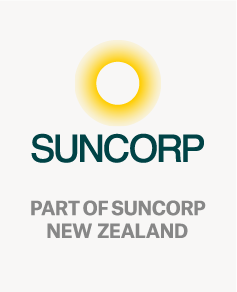Severe weather: If you are a Vero customer and need to claim, fill out our online claims form Claims | Vero or contact your broker.
By Jimmy Higgins
Chief Executive Officer
18 June, 2015
Recently we took time at Vero to reflect on the 2010 and 2011 Canterbury earthquakes and the significant period of recovery that has followed.
In February this year we released an independent report by Deloitte Access Economics “Four years on: Insurance and the Canterbury Earthquakes”.
The comprehensive report details the unique circumstances surrounding the Canterbury earthquakes and Vero’s response to this disaster. Vero received over 31,000 claims relating to the 2010 and 2011 Canterbury earthquakes, valued at just under $4.8 billion.
You can read the full report here.
How we respond to natural disasters
When we released the report, we also called for discussion on how New Zealand’s natural disaster insurance model operates for customers.
The feedback we’ve consistently had following the Canterbury earthquakes is that customers want a much simpler and more efficient process, particularly around claims management. In their moment of truth, we believe customers need their insurer to help them get their lives back to normal as quickly as possible and that this needs to be the defining principle of New Zealand’s insurance framework. We believe changes need to be made by Government to achieve this.
Every natural disaster has unique circumstances, and we all learned through the Canterbury earthquakes how truly unique those circumstances can be. Recent jolts in the upper South Island, and the tragic events in Nepal, quickly bring our minds back to the events of 2010 and 2011.
Natural disasters also act as a reminder to be as prepared as possible for the unexpected.
Following the Canterbury earthquakes, New Zealanders are even more attuned to the possibility of earthquakes. But of course, there are many other types of natural disasters that can put us in danger throughout the year including floods, landslides, storms, tsunamis, volcanoes and droughts.
In some cases there will be time to act. However, if there is another earthquake or a tsunami close to land, there will be no opportunity. No matter what the disaster, there are always some steps we can all take to be as prepared as possible.
So what can you do to be prepared?
Ensuring your insurance is up to date and adequate and that you understand what you are and aren’t covered for is an obvious step. But there are practical steps you can take to be informed and to make a plan to help you, your family and other loved ones with the challenges such a disaster will bring.
- Is your family prepared for a disaster – does it have a plan to meet up after a disaster?
- Do you have the essentials to survive for three days or more?
- Do you know how to turn off the water, electricity and gas? Who will be responsible in your family for doing this?
- Do you know what your school or work emergency plan is?
- Do you have an emergency kit for car and home?
- Do you have a battery-powered radio so you can receive updates from Civil Defence if power is out or your mobile device loses power?
The government’s Get Thru website is an excellent resource to learn about what steps to take before, during and after an emergency, and to plan and stay informed for emergencies. There are also some great tools for educators and parents.
Your local civil defence will be able to give you regular updates during an emergency. And you can always check back here for help and how to make safe should there be a disaster.
Keep reading
We're nearing the end of our Canterbury earthquake programme, so we're taking a regular look at the progress...
The information in this article has been compiled from various sources and is intended to be factual information only. Full details of policy terms and conditions are available from Vero Insurance New Zealand Limited or your financial adviser. For advice on product suitability, please contact your financial adviser. While we take reasonable steps to ensure that the information contained in this article is accurate and up-to-date, it is subject to change without notice. Vero Insurance New Zealand and its related companies does/do not accept any responsibility or liability in connection with your use of or reliance on this article.
